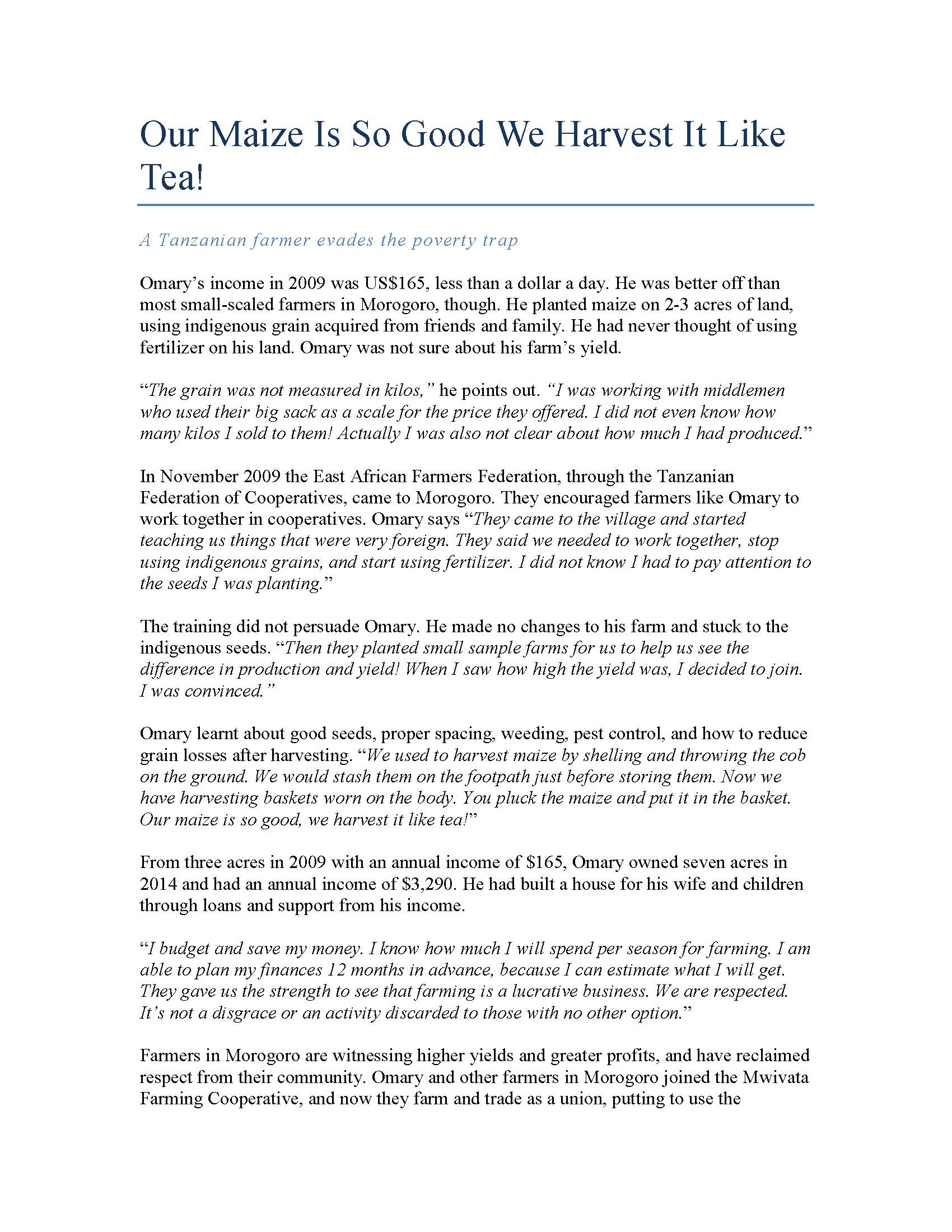Home » Our Maize Is So Good We Harvest It Like Tea!
A Tanzanian farmer evades the poverty trap
Omary’s income in 2009 was US$165, less than a dollar a day. He was better off than most small-scaled farmers in Morogoro, though. He planted maize on 2-3 acres of land, using indigenous grain acquired from friends and family. He had never thought of using fertilizer on his land. Omary was not sure about his farm’s yield.
“The grain was not measured in kilos,” he points out. “I was working with middlemen who used their big sack as a scale for the price they offered. I did not even know how many kilos I sold to them! Actually I was also not clear about how much I had produced.”
In November 2009 the East African Farmers Federation, through the Tanzanian Federation of Cooperatives, came to Morogoro. They encouraged farmers like Omary to work together in cooperatives. Omary says “They came to the village and started teaching us things that were very foreign. They said we needed to work together, stop using indigenous grains, and start using fertilizer. I did not know I had to pay attention to the seeds I was planting.”
The training did not persuade Omary. He made no changes to his farm and stuck to the indigenous seeds. “Then they planted small sample farms for us to help us see the difference in production and yield! When I saw how high the yield was, I decided to join. I was convinced.”
Omary learnt about good seeds, proper spacing, weeding, pest control, and how to reduce grain losses after harvesting. “We used to harvest maize by shelling and throwing the cob on the ground. We would stash them on the footpath just before storing them. Now we have harvesting baskets worn on the body. You pluck the maize and put it in the basket. Our maize is so good, we harvest it like tea!”
From three acres in 2009 with an annual income of $165, Omary owned seven acres in 2014 and had an annual income of $3,290. He had built a house for his wife and children through loans and support from his income.
“I budget and save my money. I know how much I will spend per season for farming. I am able to plan my finances 12 months in advance, because I can estimate what I will get. They gave us the strength to see that farming is a lucrative business. We are respected. It’s not a disgrace or an activity discarded to those with no other option.”
Farmers in Morogoro are witnessing higher yields and greater profits, and have reclaimed respect from their community. Omary and other farmers in Morogoro joined the Mwivata Farming Cooperative, and now they farm and trade as a union, putting to use the knowledge they received through the programs run by the East African Farmers Federation.
Issuing Country
Date
Monday, January 25, 2016 - 12:45pm








Comment
Make a general inquiry or suggest an improvement.